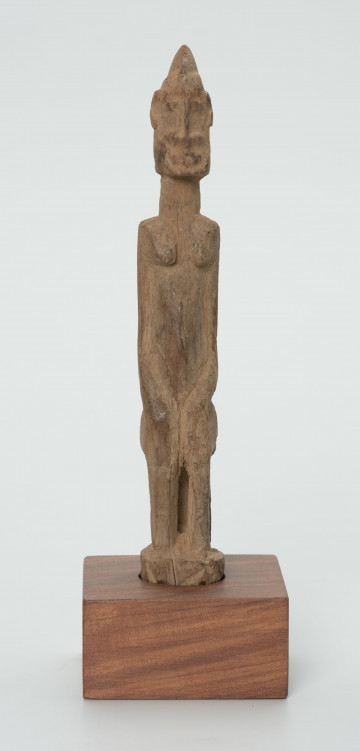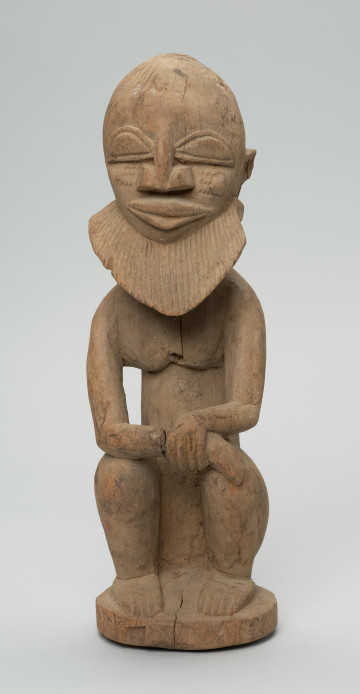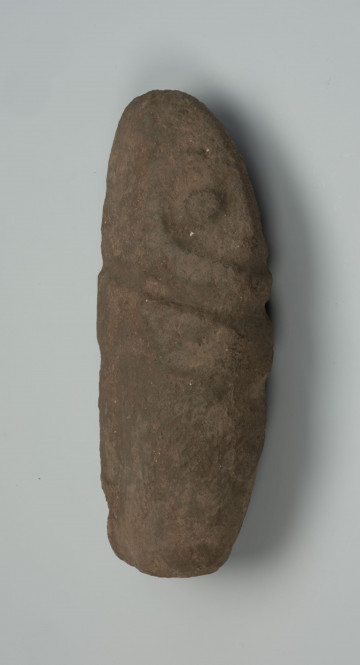
Figurine - ancestor
między 1901 — 1950
National Museum in Szczecin
Part of the collection: Collection of Dogonian art
Dogon women, like any other women, attach great importance to body care. They apply karite butter (Vitellaria paradoxa) or sa fruit oil (Lannea acida) to their skin and hair. Cow's milk butter is also very desirable for cosmetic purposes. Hairstyle and scarification are also important elements of feminine beauty. The Dogon decorate their hair with numerous metal rings or beads made of agate, glass or quartz. In this respect they imitate the Fula - women from the neighbouring shepherd tribe, local masters in creating elaborate hairstyles and attaching various ornaments. Another important, now disappearing, method of decorating the body is scarification, i.e. incision of the skin and obtaining patterns from scarred wounds. The Dogon practice incisions on the temples in the form of three vertical marks for men, four for women. Even in the mid-20th century one could still see a woman with a scarification on her back consisting of two rows of vertical incisions, imitating the patterns on the body of the Nommo deities. Scarification was performed before initiation and had a symbolic meaning. Nowadays, ritual incisions, which are also decorative, can only be seen on the bodies of older women. Ogotemmneli Dolo, a Dogon sage, in a conversation with Marcel Griaul shared information about the way women attract the attention of men and explained the meaning of the number 4: The word nay means the female number four and sun, which is feminine. [...] The word is the secret of every woman and it is what attracts men. It is enough for a woman to cover some parts of her body and they are already coveted. No one would chase a woman who would go to market naked, even if she were very beautiful. A man's heart does not desire her unless her kidneys are covered [...]. To be naked is to be deprived of the Word.
Ewa Prądzyńska
Author / creator
Dimensions
cały obiekt: height: 12 cm, width: 2,5 cm
Object type
figure
Creation time / dating
Creation / finding place
Identification number
Location / status

między 1901 — 1950
National Museum in Szczecin

między 1951 — 2000
National Museum in Szczecin

między 1951 — 2000
National Museum in Szczecin
DISCOVER this TOPIC
Museum of King Jan III's Palace at Wilanów
DISCOVER this PATH
Educational path